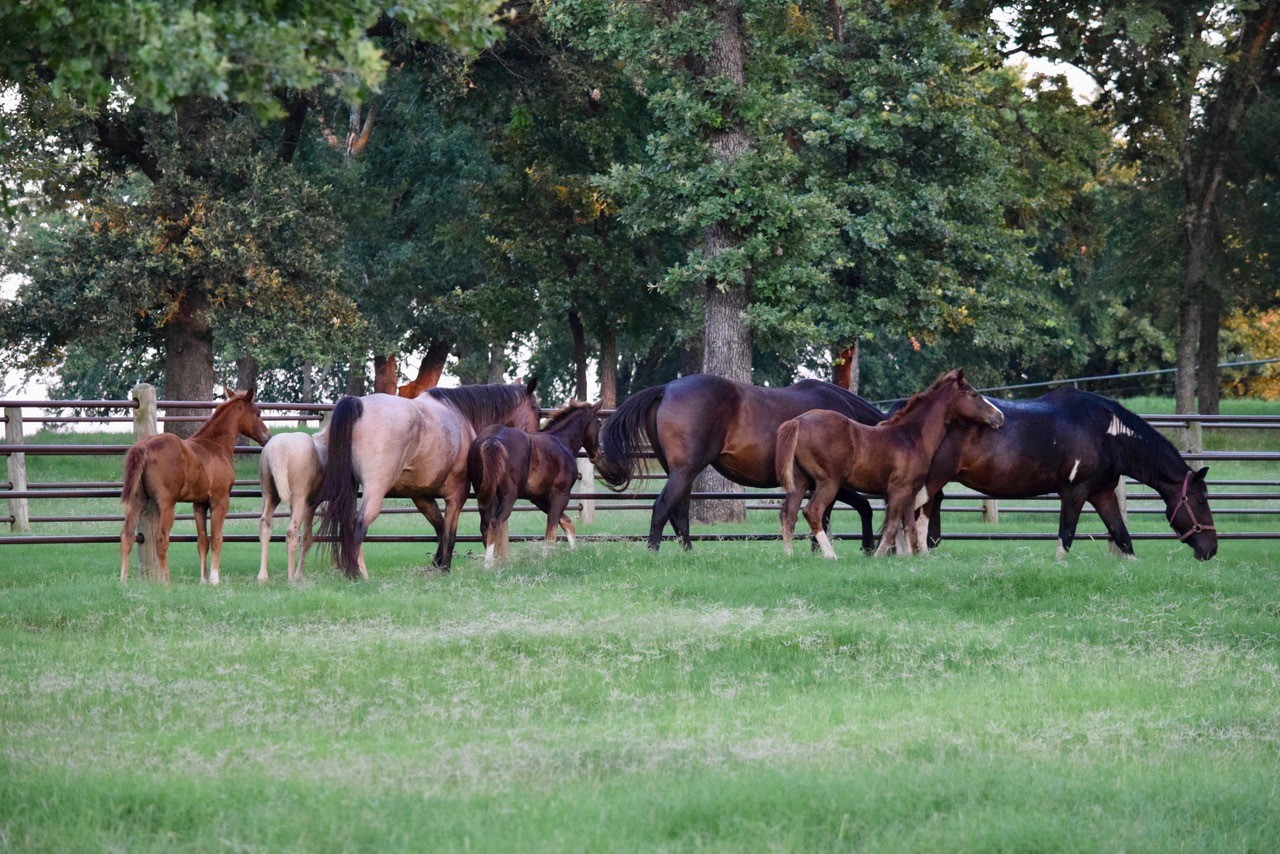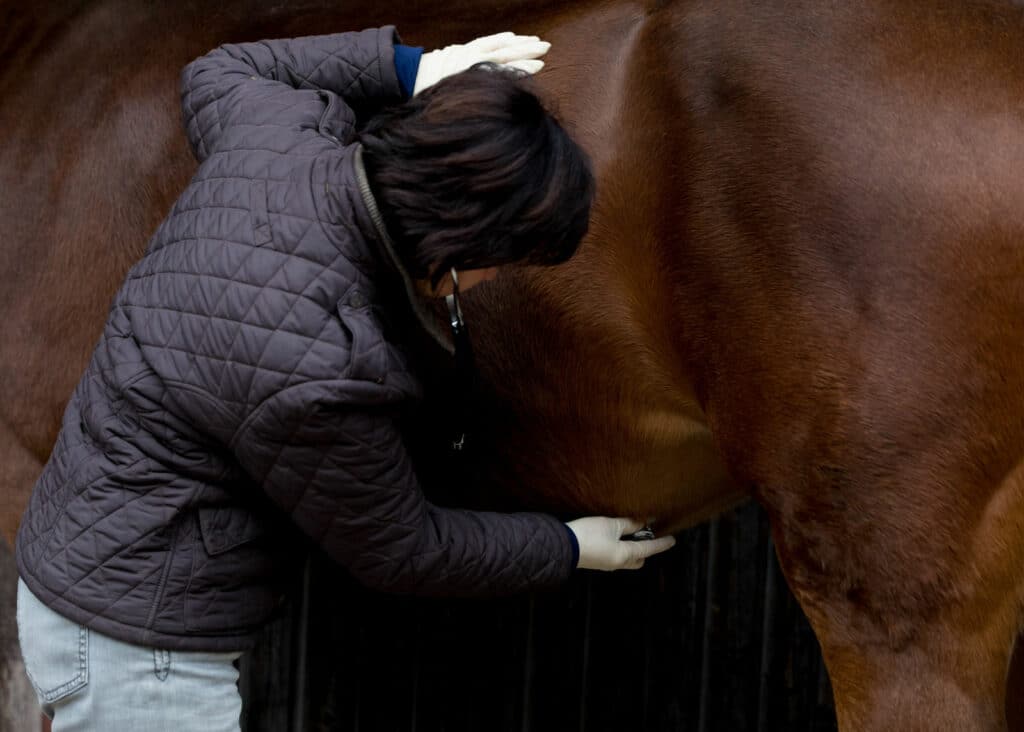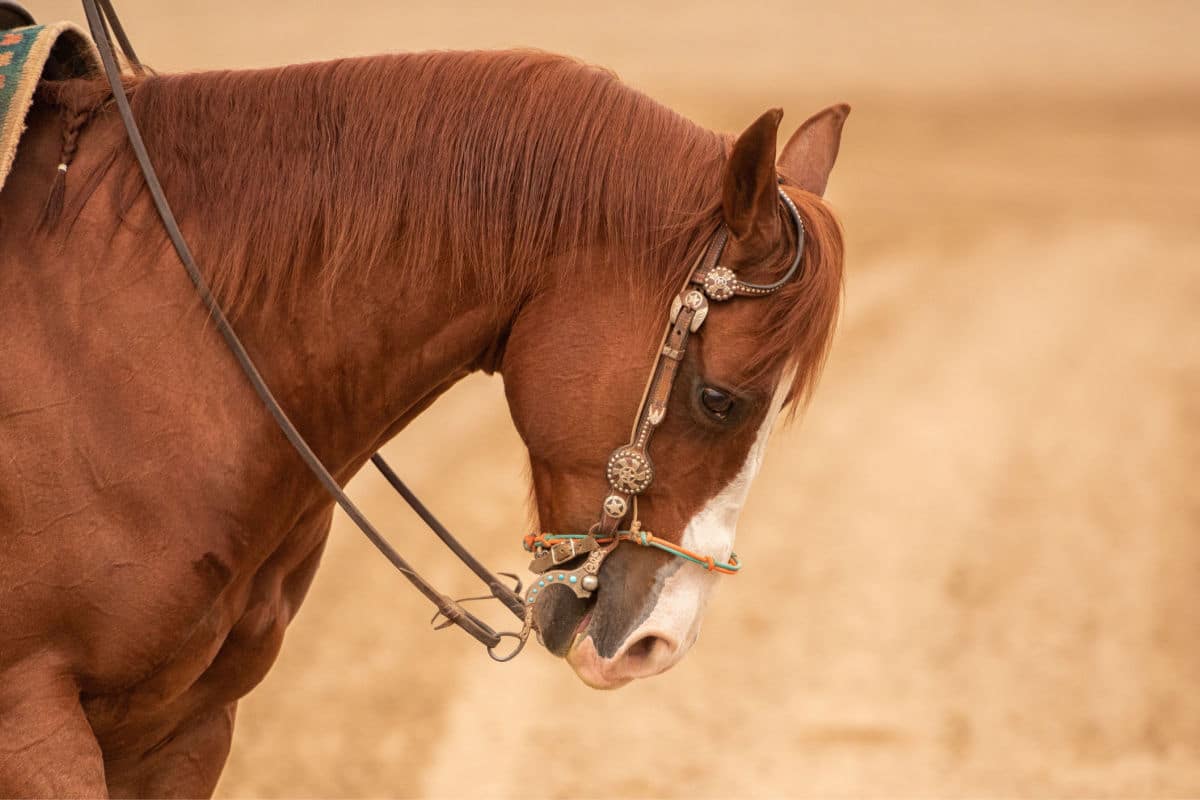
By now, you should be well armed in the fight against winter weight loss: You know why horses lose weight in winter, what to look for, and some strategies for reversing the trend.
Of course, the best cure for winter weight loss is to nip it in the bud before November strikes. That means preparing for frosty mornings while the grass is still knee-high in the fields. Maintaining a healthy weight year round requires attention to everything from dental health to properly seeded fields, but it hinges on maintaining a healthy digestive system. Sync your calendar with this 12-month checklist to keep your horse at optimal weight all year round.
Around-the-Clock Nutrition
A healthy horse requires constant care. Here are a few of the around-the-clock things to keep in mind:
- Schedule regular visits from your farrier (every six weeks).
- Ensure bi-annual dental checkups and care.
- Provide free access to high-quality pasture grasses and/or hay to keep your horse’s teeth and digestive system healthy.
- Minimize grain and concentrates, which can lead to diarrhea, weight loss, ulcers, and colic when fed in large amounts. Instead, replace with soaked beet-pulp shreds, which are calorically equal to oats, but are more easily digested.
- If you do choose to feed concentrates, mix in chaff or beet pulp (un-molassed) to slow your horse’s ingestion rate and increase saliva production, which aid digestion.
- Keep to a regular de-worming program that accounts for regional parasite schedules.
- Provide constant access to fresh water.
Nutrition throughout the Seasons
March/April
- Schedule a fecal egg count to avoid digestive imbalance and distress caused by parasites. Do this again in October.
- Evaluate your pastures. Do you need to fertilize, over-seed or control pesky or dangerous weeds? Be sure the forage your horse gets is top-quality if he’s turned out to graze, or you’ll be behind the ball before winter even begins.
- Reintroduce your horse to green grass slowly — the fructans, or sugary nutrients, in new spring grass can upset your horse’s digestive tract. This may also lead to laminitis and colic due to high levels of lactic acid in the hindgut by these fructans.
May/June
- Make hay while the sun shines — these are the most important months for ensuring your horse’s wintertime nutrition.
- Be sure to buy hay from a reputable buyer, request a hay analysis and check to make sure hay isn’t stemmy or stalky, which means it was cut too late and that its nutritional value is compromised.
July/August
- Hydration can be a challenge during the dog days of August, so be sure you provide free access to fresh water and a salt block.
- Provide hay, soaked beet pulp, or other fiber alternatives as grass turns brown and loses its nutritional value and natural water content in the heat.
September/October
- Clean out, install and evaluate hay feeders in preparation for winter — horses should never eat hay off of the ground, as manure, sand and dirt can be ingested with the hay and can lead to colic and other issues like ulcers.
- Seed bare patches in the pasture in preparation for next year.
- Gradually begin increasing caloric intake in preparation for colder weather with high-protein alfalfa hay and by adding corn- or flaxseed oil to his feed to supply Omega 3 fatty acids.
November/December
- Increase roughage and other sources of fiber in preparation for winter — but evaluate your horse carefully anytime you increase feed. An overweight horse is at risk for circulation and breathing difficulties, joint problems, chafed skin and many more serious complications.
- Be sure to integrate manual and visual checks on your horse’s weight into your routine by using a weight tape, hand check or photographs to keep a close eye on his weight.
January/February
- Soak hay and pellets, roughage chunks or beet pulp in water to provide additional hydration.
Maintaining Your Horse’s Weight: An On-Going Challenge
Maintaining a hard-keeping horse’s weight is no mean feat. Some horses are simply prone to fluctuations and seasonal weight loss, but that doesn’t mean your horse has to be a victim of compromised health.
While this 12-month plan encompasses a wide range of weight-gain strategies. Armed with the proper tools to understand, evaluate, combat and prevent wintertime weight loss, a whole-body approach can help every horse in your stable function to its full potential.



